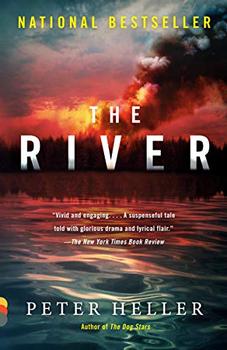Summary | Excerpt | Reviews | Beyond the book | Read-Alikes | Genres & Themes | Author Bio

A True Story
by Elisabeth Tova BaileyElisabeth Tova Bailey isn't the first to turn illness toward inspiration; however, I'm fairly certain that she may be the first to incorporate the companionship of a snail to do so. While bookstore shelves are teeming with shattering memoirs and incredible life-changing events, a unique and quiet calm surrounds The Sound of a Wild Snail Eating that gently lifts Bailey's story a bit above the rest.
When Bailey's health is sapped by a mysterious virus, she's suddenly forced to reshape her view of the world. Once strong and independent, she now finds herself helplessly confined and totally reliant on others for her care, struggling to reconcile her old vibrant self with the newly weakened one. With nothing but endless hours of introspection at hand, Bailey begins to despair: "Given the ease with which health infuses life with meaning and purpose, it is shocking how swiftly illness steals away those certainties. It was all I could do to get through each moment, and each moment felt like an endless hour, yet days slipped silently past."
The hero of this story enters...well...rather slowly. It doesn't don a cape or sport a lightning bolt on its chest, but when a visiting friend places an acorn-sized snail in the planter next to Bailey's bed, its effects are monumental. Mesmerized by the snail's practical courage and easy adaptability as it starts its life anew, Bailey begins to brighten. Without much fuss the tiny snail ekes out a new home, and Bailey is drawn by the similarity of their situations: "After being transported from the woods, the snail had emerged from its shell into the alien territory of my room, with no clue as to where it was or how it had arrived; the lack of vegetation and the desertlike surroundings must have seemed strange. The snail and I were both living in altered landscapes not of our choosing; I figured we shared a sense of loss and displacement."
 As the author's affinity for the snail swells, so too does the reader's. In perfect harmony Bailey flows back and forth between her own evolution and that of the Neohelix albolabris, or woodland snail. Sound boring? Not at all. The actions of this tiny mollusk become all-consuming and leave you desperately snail-sitting, too worried to leave our teeny friend alone for even a moment. Though small in stature, this little luminary becomes a beacon of hope for Bailey and a promise of continuity and universal connection for us all.
As the author's affinity for the snail swells, so too does the reader's. In perfect harmony Bailey flows back and forth between her own evolution and that of the Neohelix albolabris, or woodland snail. Sound boring? Not at all. The actions of this tiny mollusk become all-consuming and leave you desperately snail-sitting, too worried to leave our teeny friend alone for even a moment. Though small in stature, this little luminary becomes a beacon of hope for Bailey and a promise of continuity and universal connection for us all.
Everything about this slip of a book is unassuming, yet its petite size, prose, and characters rise like quiet giants from its pages. Where many would lash out at the unfairness of it all, you won't find bitterness in Elisabeth Tova Bailey's book. Rather than a whiny diatribe about the cruelties of fate, the author approaches her illness with a strength and equanimity mirroring that of her resilient snail. Eloquent and insightful, The Sound of a Wild Snail Eating is a lovely tale of communion that proves we are all, in fact, inextricably bound.
![]() This review was originally published in The BookBrowse Review in September 2010, and has been updated for the
September 2016 edition.
Click here to go to this issue.
This review was originally published in The BookBrowse Review in September 2010, and has been updated for the
September 2016 edition.
Click here to go to this issue.

If you liked The Sound of a Wild Snail Eating, try these:

by Chloe Dalton
Published 2025
A moving and fascinating meditation on freedom, trust, loss, and our relationship with the natural world, explored through the story of one woman's unlikely friendship with a wild hare.

by Peter Heller
Published 2020
From the best-selling author of The Dog Stars, the story of two college students on a wilderness canoe trip - a gripping tale of a friendship tested by fire, white water, and violence.
Your guide toexceptional books
BookBrowse seeks out and recommends the best in contemporary fiction and nonfiction—books that not only engage and entertain but also deepen our understanding of ourselves and the world around us.